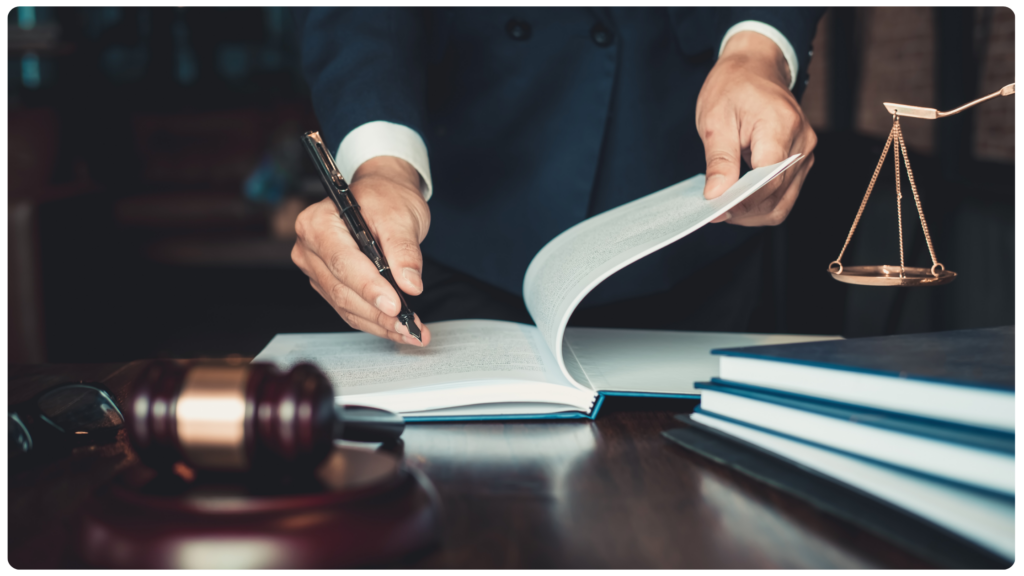Navigating the complexities of legal malpractice can be daunting, but understanding the fundamental elements can provide clarity and direction. If you suspect that your attorney’s actions—or lack thereof—have negatively impacted your case, it’s crucial to assess whether you have a valid legal malpractice claim.
This FAQ blog post aims to demystify the process, offering insights into identifying a potential legal malpractice claim, understanding key legal terms, and knowing your rights and options. By following these guidelines, you can take informed steps toward seeking justice and addressing any grievances you may have.
Please note that this information is for general informational purposes only and should not be considered legal advice. For personalized legal guidance, consult with a qualified attorney.
1. How do I know if I have a legal malpractice claim?
Determining if you have a legal malpractice claim can be complex and may require consulting with another attorney. However, here are some general steps to consider:
- Assessing Attorney Conduct: Begin by evaluating whether your attorney breached their duty of care. This could include instances such as missing deadlines, providing incorrect legal advice, failing to communicate effectively, or mishandling funds.
- Reviewing Damages: Consider the damages you’ve suffered due to the attorney’s actions or negligence. This may include financial losses, lost opportunities, or emotional distress.
- Establishing Causation: Determine if the attorney’s actions directly caused your damages. It’s essential to demonstrate a clear link between their conduct and the harm you’ve experienced.
- Understanding Statute of Limitations: Familiarize yourself with the statute of limitations for legal malpractice claims in Wisconsin and Illinois. This timeframe dictates the window within which you must file a claim after discovering the malpractice.
- Consulting Another Attorney: Seek guidance from a different attorney experienced in legal malpractice cases. They can provide an objective review of your circumstances and advise on the viability of your claim.
Remember, each case is unique, and the success of your claim will depend on various factors, including the specific details of your situation and the applicable laws in Wisconsin or Illinois. Prioritize gathering evidence and information before proceeding with any legal action.
For personalized assistance and guidance tailored to your circumstances, contact us for a discovery session.
2. What needs to be established in order to have a legal malpractice claim?
When you hire an attorney, you trust them to represent your legal interests competently and ethically. However, if your attorney fails to meet the standard of care expected of legal professionals, resulting in harm to you, you may have grounds for a legal malpractice claim.
Legal malpractice occurs when an attorney breaches their duty of care to a client, causing them harm. To successfully pursue such a claim, several key elements must typically be established:
1. Existence of Attorney-Client Relationship: The first step in a legal malpractice case is demonstrating that an attorney-client relationship existed between you and the attorney accused of malpractice. This relationship is typically established when you hire an attorney to provide legal representation, and they agree to take on your case.
2. Breach of Duty: Central to a legal malpractice claim is the assertion that the attorney breached their duty of care owed to you as a client. This breach may take various forms, including missing important deadlines, providing incorrect legal advice, failing to communicate crucial information, or mishandling funds entrusted to them.
3. Causation: To succeed in a legal malpractice case, you must establish a direct causal link between the attorney’s breach of duty and the harm you suffered. In other words, you need to demonstrate that the attorney’s actions or omissions were the cause of the damages you experienced.
4. Damages: Proving that you suffered actual damages as a result of the attorney’s negligence or misconduct is essential in a legal malpractice claim. These damages can encompass financial losses, lost opportunities, emotional distress, or harm to your legal interests.
5. Proximate Cause (in some jurisdictions): Some jurisdictions require plaintiffs in legal malpractice cases to demonstrate proximate cause, which means showing that the harm suffered was a foreseeable consequence of the attorney’s actions or inaction.
6. Statute of Limitations Compliance: It’s crucial to file your legal malpractice claim within the statute of limitations period specified by your jurisdiction. Failure to do so may result in your claim being time-barred, regardless of its merits.
Navigating a legal malpractice claim can be complex, requiring careful documentation, legal analysis, and representation. Consulting with an experienced attorney specializing in legal malpractice can provide invaluable guidance and support throughout the process.
If you believe you’ve been the victim of legal malpractice, don’t hesitate to seek legal advice promptly. By understanding the key elements required to establish a legal malpractice case, you can take proactive steps to protect your rights and pursue the compensation you deserve.
3. What is the statute of limitations for filing a legal malpractice claim in your jurisdiction? Are there any exceptions or nuances to be aware of regarding the time limit for bringing a claim
When it comes to legal malpractice claims, time is of the essence. The statute of limitations sets the deadline within which a lawsuit must be filed, and understanding this crucial aspect of the law is paramount for anyone considering pursuing a legal malpractice case.
What is the Statute of Limitations? The statute of limitations is a legal time limit imposed on the filing of lawsuits. In the context of legal malpractice claims, it specifies the timeframe within which a plaintiff must initiate legal action against an attorney for alleged misconduct or negligence.
Jurisdictional Variations: One of the first questions to address when contemplating a legal malpractice claim is: What is the statute of limitations in my jurisdiction? Statutes of limitations vary by state and can even differ depending on the specific circumstances of the case.
For example, in some states, the statute of limitations for legal malpractice may be two years from the date the malpractice occurred or was discovered, while in others, it could be as long as four or even six years. Additionally, certain states may have different deadlines for claims involving ongoing representation or fraudulent concealment of malpractice.
Exceptions and Nuances: Navigating the statute of limitations in legal malpractice cases requires a keen understanding of any exceptions or nuances that may apply. Some jurisdictions recognize tolling provisions, which temporarily suspend or extend the statute of limitations under certain circumstances, such as when the plaintiff is a minor or incapacitated.
Moreover, the discovery rule may come into play, allowing the statute of limitations to begin from the date the plaintiff discovered or reasonably should have discovered the attorney’s malpractice, rather than the date the malpractice actually occurred.
Why Timing Matters: Failing to file a legal malpractice claim within the applicable statute of limitations can have serious consequences. A lawsuit filed after the expiration of the statute of limitations is likely to be dismissed by the court, barring the plaintiff from pursuing their claim altogether.
Seeking Legal Guidance: Given the complexities surrounding statutes of limitations in legal malpractice cases, consulting with an experienced attorney is crucial. An attorney knowledgeable in this area of law can provide invaluable guidance, helping plaintiffs understand their rights, assess their case’s viability, and take appropriate action within the prescribed timeframe.
When contemplating a legal malpractice claim, it’s essential to be mindful of the statute of limitations governing such cases in your jurisdiction. By understanding the applicable time limits, exceptions, and nuances, plaintiffs can make informed decisions and protect their legal interests effectively.
4. What rights do clients have when they suspect they’ve been the victim of legal malpractice? What remedies or options are available to individuals who believe they have a valid legal malpractice claim?
Discovering that you’ve been the victim of legal malpractice can be a distressing realization, but it’s essential to understand that you have rights and recourse available to you. Whether your attorney failed to meet the standard of care, provided incorrect legal advice, or mishandled your case, knowing your legal rights and available remedies is crucial.
Rights of Clients Suspecting Legal Malpractice
When clients suspect they’ve been the victims of legal malpractice, they have certain rights aimed at protecting their interests and holding accountable those responsible for negligence or misconduct. These rights may include:
- Right to Information: Clients have the right to obtain information about the services provided by their attorney, including documentation related to their case and communications exchanged during the attorney-client relationship.
- Right to Seek Legal Advice: Clients have the right to seek advice from another attorney to assess whether they have a valid legal malpractice claim and to explore their options for recourse.
- Right to File a Complaint: Clients can file a complaint with the state bar association or other regulatory authorities responsible for overseeing attorney conduct. These complaints trigger investigations into allegations of legal malpractice and may result in disciplinary actions against the attorney if warranted.
- Right to Pursue Legal Action: If clients believe they have a valid legal malpractice claim, they have the right to pursue legal action against the responsible attorney or law firm to seek compensation for damages incurred as a result of the malpractice.
- Remedies and Options for Victims of Legal Malpractice
Individuals who believe they have a valid legal malpractice claim have several remedies and options available to them to seek redress for their losses. These may include:
- Financial Compensation: One of the primary remedies sought in legal malpractice cases is financial compensation for the damages suffered by the client. This may include reimbursement for legal fees paid, monetary losses incurred as a result of the malpractice, and compensation for emotional distress or other non-economic damages.
- Corrective Action: In some cases, clients may seek corrective action to rectify the harm caused by the attorney’s negligence or misconduct. This could involve reopening a case, revisiting legal decisions or settlements, or pursuing other legal remedies to mitigate the effects of the malpractice.
- Settlement Negotiations: Many legal malpractice claims are resolved through settlement negotiations between the parties involved. Settlements allow clients to recover damages without the need for a lengthy and costly trial, providing a quicker resolution to their claims.
- Litigation: If a settlement cannot be reached, clients have the option to pursue litigation by filing a lawsuit against the responsible attorney or law firm. Litigation involves presenting evidence, arguing legal issues, and seeking a judgment from the court to determine liability and award damages.
Seeking Legal Guidance and Advocacy
Navigating the complexities of legal malpractice claims and pursuing remedies requires the guidance and advocacy of an experienced attorney specializing in this area of law. A knowledgeable attorney can assess the merits of your case, advise you on your legal rights, and advocate on your behalf to achieve a favorable outcome.
Clients who suspect they’ve been the victims of legal malpractice have rights and options available to them to seek justice and compensation for their losses. By understanding their legal rights and seeking the assistance of a qualified attorney, clients can pursue remedies and hold accountable those responsible for legal negligence or misconduct.
5. Navigating Legal Terminology in the Context of Legal Malpractice
Legal malpractice cases involve complex legal concepts and terminology that can be daunting to navigate without proper understanding. Key terms such as “breach of duty,” “causation,” and “damages” play critical roles in assessing and pursuing legal malpractice claims. Let’s delve into what these terms mean in this context and explore resources available to help you grasp these concepts.
Breach of Duty: In the context of legal malpractice, a “breach of duty” refers to a failure by an attorney to meet the standard of care expected of them in their professional capacity. Attorneys owe their clients a duty to provide competent and diligent representation. A breach occurs when an attorney’s actions or omissions fall below this standard, such as missing deadlines, providing incorrect legal advice, or neglecting to communicate effectively with the client.
Causation: “Causation” is the link between the attorney’s breach of duty and the harm suffered by the client. In legal malpractice cases, causation establishes that the attorney’s negligent conduct directly resulted in the client’s damages. It requires demonstrating that, but for the attorney’s breach, the client would not have suffered harm. Establishing causation often involves proving that the attorney’s actions were a substantial factor in causing the client’s losses.
Damages: In the context of legal malpractice, “damages” refer to the losses or harm suffered by the client as a result of the attorney’s negligence or misconduct. Damages can take various forms, including financial losses, lost opportunities, emotional distress, or harm to the client’s legal interests. To recover damages in a legal malpractice case, the client must demonstrate the specific losses they have incurred due to the attorney’s actions or omissions.
Online Resources and Guides:
Fortunately, there are numerous online resources and guides available to help individuals understand the legal concepts and terminology relevant to legal malpractice claims. These resources can provide explanations, examples, and insights to demystify complex legal issues. Here are a few options to consider:
- Legal Websites and Blogs: Many legal websites and blogs feature articles, guides, and FAQs that explain legal concepts related to malpractice claims in accessible language. Websites like FindLaw, Nolo, and LegalZoom often provide informative content on this topic.
- Bar Association Websites: State and local bar associations often offer resources and publications on legal malpractice, including explanations of key terms and concepts. These resources may be tailored to the specific jurisdiction’s laws and regulations.
- Online Legal Forums: Online forums and communities dedicated to legal topics may feature discussions and explanations of legal malpractice concepts. Websites like Avvo, LawStack, and Reddit’s legal advice forums can be valuable sources of information and insights from legal professionals and peers.
- Legal Guides and Publications: Some legal publishers produce guides and publications specifically addressing legal malpractice issues. These resources may offer in-depth explanations, case studies, and practical tips for navigating legal malpractice claims.
By leveraging these online resources and guides, individuals can enhance their understanding of legal terms and concepts relevant to legal malpractice claims. Armed with knowledge and information, clients can better advocate for their rights and make informed decisions when pursuing remedies for legal negligence or misconduct.
While determining if you have a legal malpractice claim involves several steps and considerations, a clear understanding of the process can significantly aid in navigating this challenging situation. Assessing your attorney’s conduct, understanding the damages you’ve incurred, and recognizing the importance of the statute of limitations are crucial components in evaluating your claim.
Remember, consulting with an experienced attorney specializing in legal malpractice is vital for personalized guidance and effective action.
By being well-informed and proactive, you can better protect your legal rights and pursue the compensation you deserve. If you believe you have been a victim of legal malpractice, don’t hesitate to seek the assistance you need to address and resolve your concerns.
Legal Disclaimer: The information on this blog is for general informational purposes only and does not constitute legal advice. It is based on current legal standards but does not create an attorney-client relationship. For advice specific to your situation, consult a qualified attorney.
The views expressed are those of the individual authors and do not reflect those of any affiliated organizations or a single Katz Law Firm lawyer or agent. The accuracy and applicability of the information may vary. The blog owner and authors assume no liability for actions taken based on this content. Always seek professional legal counsel before making any legal decisions.



















